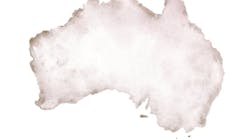Extractive industries lead business groups as targets of antibribery enforcement actions over the past 34 years, according to a report by TRACE, a nonprofit membership organization.
TRACE’s second annual Global Enforcement Report shows the extractive industries category has drawn 68 out of the 351 enforcement actions against foreign and domestic bribery taken since enactment of the US Foreign Corrupt Practices Act in 1977. The runner-up industry category in the 2011 report is aerospace/defense/security, with 43, followed by manufacturer/service provider and health care, with 42 each.
Other industries and their antibribery enforcement actions are engineering/construction, 37; transportation/communications, 31; financial services, 26; technology/software, 20; agriculture/food, 18; nonprofit-education/consulting/other, 12; property development, 8; and retail and entertainment/film, 2 each.
The industry breakout is based on summaries from the online TRACE Compendium, which collects information about all publicly known enforcement actions, including investigations, prosecutions, settlements, and cases settled with no finding of bribery. The summaries cover a common set of conduct and may include more than one enforcement action.
TRACE acknowledges that some enforcement actions remain unknown and warns that “classifying bribery investigations as enforcement actions can be problematic since investigations can be dropped due to insufficient evidence or closed without any resolution or can continue indefinitely with no formal action ever taken.”
US dominates enforcement
Among countries, the US dominates foreign-bribery enforcement, with 468 actions out of a total of 632 during 1977 through July 2011. The UK was runner-up in this category, with 32 actions, followed by Germany, 20; South Korea, 13; and Japan and Italy, 11 each.
Nigeria dominates countries in enforcement of laws against bribery of their own officials by foreign companies. Of 108 domestic bribery enforcement actions in the study period, Nigeria had 12, followed by Italy, 10; South Korea, 8; China, 6; and Lesotho and Argentina, 5 each.
Although most countries have enacted antibribery laws, many of them after signing international conventions calling for criminalization of the activity, a relatively few of them enforce their laws.
“Just 24 countries have pursued enforcement of their foreign bribery laws, and just 40 have pursued enforcement of their domestic bribery laws against foreign citizens of companies in the last 34 years,” TRACE says. “There is considerable overlap in the countries that have pursued both.”
China leads a list of countries ranked by location of bribe payments. It had 41 enforcement actions out of a total of 585 for countries with 4 or more actions, including foreign and domestic bribery. Iraq followed with 41—38 of which were investigations related to the United Nations Oil-for-Food Program.
Other countries ranking high as bribery locations are Nigeria, 38; India, 19; Mexico, 16; Brazil, 14;, and Russia and Indonesia, 13 each.
